- News
- Reviews
- Bikes
- Accessories
- Accessories - misc
- Computer mounts
- Bags
- Bar ends
- Bike bags & cases
- Bottle cages
- Bottles
- Cameras
- Car racks
- Child seats
- Computers
- Glasses
- GPS units
- Helmets
- Lights - front
- Lights - rear
- Lights - sets
- Locks
- Mirrors
- Mudguards
- Racks
- Pumps & CO2 inflators
- Puncture kits
- Reflectives
- Smart watches
- Stands and racks
- Trailers
- Clothing
- Components
- Bar tape & grips
- Bottom brackets
- Brake & gear cables
- Brake & STI levers
- Brake pads & spares
- Brakes
- Cassettes & freewheels
- Chains
- Chainsets & chainrings
- Derailleurs - front
- Derailleurs - rear
- Forks
- Gear levers & shifters
- Groupsets
- Handlebars & extensions
- Headsets
- Hubs
- Inner tubes
- Pedals
- Quick releases & skewers
- Saddles
- Seatposts
- Stems
- Wheels
- Tyres
- Health, fitness and nutrition
- Tools and workshop
- Miscellaneous
- Cross country mountain bikes
- Tubeless valves
- Buyers Guides
- Features
- Forum
- Recommends
- Podcast
review
£3,299.99
VERDICT:
Impressive, lightweight, comfortable race machine, deserves better finishing kit though
Weight:
8,250g
Contact:
At road.cc every product is thoroughly tested for as long as it takes to get a proper insight into how well it works. Our reviewers are experienced cyclists that we trust to be objective. While we strive to ensure that opinions expressed are backed up by facts, reviews are by their nature an informed opinion, not a definitive verdict. We don't intentionally try to break anything (except locks) but we do try to look for weak points in any design. The overall score is not just an average of the other scores: it reflects both a product's function and value – with value determined by how a product compares with items of similar spec, quality, and price.
What the road.cc scores meanGood scores are more common than bad, because fortunately good products are more common than bad.
- Exceptional
- Excellent
- Very Good
- Good
- Quite good
- Average
- Not so good
- Poor
- Bad
- Appalling
New for 2017 is Genesis' Zero Disc range which sees the British brand take its carbon fibre race model and give it some tweaks, most notably the addition of disc brakes but there is more to it than that. Let's take a look at what makes the range-topping Zero Disc i such an impressive, lightweight, comfortable race machine.
The Zero was released a few years back as Genesis' entry into the world of carbon fibre race bikes to sit alongside their established Volare, the steel bike that their trade team were racing.
The Zero was designed to be used for the longer stage race where the balance between stiffness and comfort was a little more crucial. More importantly though it makes it a great bike for those who just want to ride fast without actually needing or wanting a license.
The Zero Disc is an evolution of that as with British Cycling still restricting use of disc brakes in races means, for now at least the Zero Disc is aimed squarely at the club rider, weekend warrior and anyone else who just wants to get out there and smash the pedals.
Ride
The first thing you notice once you start riding the Zero Disc i is just how light and responsive it is. Okay, at 8.25kg for our medium model it's not exactly a featherweight especially at this price but it rides like a bike much, much lighter.
Acceleration, whether that be on the flat or on the inclines is instant and dealt with in a controlled manner. The Zero Disc i doesn't whip about or feel unsettled on broken tarmac even when you are really stamping on the pedals, a testament to how much compliance they've built into the frame without sacrificing power transfer.
The Zero Disc i follows the tried and tested route of carbon fibre frame manufacture of oversized downtube, bottom bracket area and chainstays while the seatstays especially are very narrow to promote flex.
It uses Pressfit BB86 bottom bracket bearings which have a larger outer diameter than standard. They sit inside the frame, rather than being outboard, so the bottom bracket shell can be wider for increased stiffness. The larger surface area of the bottom bracket shell means the tube junctions can be increased in size too.
The front end isn't immune from a bit of a diameter increase either. Steerer and head tube are tapered. The steerer is 1 1/4in at the bottom for stiffness, narrowing to 1 1/8in at the top to take a standard stem. The handling is stable and very easy to live with and you don't get any surprises.
One of the longer test rides on the Zero Disc saw me head down to Dorset and then along the Jurassic Coast, a twisty lumpy B-road. It's a challenging road with plenty of climbing, bends and descents, it also happened to be 31.8°C and I didn't have a bottle!
I was struggling with dehydration, low blood sugar and fatigue but I wasn't going to let that get in the way of having fun on the descent to sea level. The road was pretty straight with just a slight bend in the middle, nothing too taxing and even in my less than alert state the Genesis just got on with the job even when I was well over the 50mph speed limit.
The steering has a neutral feel to it but it's well-balanced. I only found the Zero Disc i a little wanting when things started to get technical at speed. It lacks the sharpness and engagement of a bike of this geometry, with pretty steep seat and head angles plus a stack to reach ratio of 1.44 which puts it in the performance category.
On the descents, though, the fork stiffness impresses even when you really force those high braking loads through the legs. Genesis have gone for a thru axle so instead of a quick release spindle you get a threaded tube that passes through the first 'dropout' (it's actually a hole through the fork leg), through the wheel axle before it screws into the other fork leg.
On disc-equipped bikes with quick releases and traditional dropouts I've found stopping from 50-60mph can cause the feeling of the whole wheel twisting under load and I'd had to to re-sit the wheel to realign the rotor in the caliper. There is none of that here.
As I said earlier the Zero Disc i focuses on comfort and it makes the bike very easy to ride quickly over a long distance without fatigue kicking in.
Even with that racy position you never feel overly stretched out, neither do you feel too upright. The Genesis seems to sit you in a position that just feels right for the majority of terrain. You can hunker down in the drops if you want to push on and even the most inflexible should be able to maintain it.
The compact style frame has a heavily sloping top tube which exposes a lot of seatpost to flex for added comfort. When paired with those pencil thin seatstays this means the ride has a bit of a steel feel about it: smooth, velvety if you like. You certainly don't get the buzziness associated with a lot of performance carbon framesets.
Frame and Fork
The Zero Disc has a claimed frameset weight of 1.44kg which is pretty impressive for a frame and fork designed to stand up to the extra loadings of disc brakes. Things look even more impressive when you take into account the aero shaped oversized tubes which often add weight against saving watts in the wind tunnel. It goes a lot of the way to justify the £1799.99 price for the bare frame and fork.
The overall finish of the frameset is impeccable, with a deep paintjob keeping the carbon fibre covered up. I'm rather a fan of the grey colour too.
All the cables, hoses and wires are passed through the frame giving a clean look and protecting them from the elements. It also makes the frame compatible with both mechanical and Di2 shifters. The tube inserts aren't the most elegant I've seen but they keep paint rub at bay.
Finishing Kit
This 'i' model comes with a full Ultegra Di2 groupset with hydraulic brake levers, flat mount calipers and 160mm rotors. That is an expensive setup especially with those shifters costing more than many mechanical complete groupsets.
The shifting is brilliant and while I can notice a marked difference between Ultegra and Dura Ace mechanical there is little to separate them in their electronic form. A lot of this is helped by the non-series shifters which cover hydraulic Di2 throughout the range, as they need to be able to work with the top end stuff.
A lot of manufacturers have stuck with 140mm rotors front and rear, a setup that I think is perfectly adequate and I really didn't feel any benefit from the larger discs here. In fact, I wasn't overly amazed with the braking as a whole compared to my own system on the Mason with 140mm ColdTech rotors. That is probably more to do with setup preference though.
For gearing the Zero Disc i comes with a semi-compact chainset, 52/36T chainrings paired with an 11-speed, 11-28T cassette. It's a setup I'm a big fan of offering a decent spread of gears across the board for climbing and flat out pace work though you might want to swap to a 50/34T up front if you spend a lot of time in the hills.
The wheels are Fulcrum Racing 5 DBs, the Italian brand's disc-specific wheelset. They are a little average when compared to the frameset they adorn.
At a claimed 1715g they suffer a bit in the hills and blunt acceleration a touch so during testing I stuck on some Mason x Hunt wheels, a little more expensive but 160g lighter which made a real difference to how the Genesis rode and responded.
The Fulcrum's are a solid set of wheels though. You won't have much trouble from them at all in terms of reliability and they are pretty easy to service.
The Continental tyres are much like the wheels, solid and dependable without being truly outstanding anywhere and could really do with better rolling resistance for a frame of this style. Wear levels are good long term from personal experience and so is puncture proofing.
The Zero Disc i costs £3299.99 which is a lot of money. There is a lot of development in that frame, it's a good 'un, plus you've got the electronic/hydraulic groupset which all adds up but I still find the own branded finishing kit at this price a little poor, especially the basic alloy seatpost and cheap feeling, hard saddle.
I'm not expecting carbon (well maybe at the seatpost) but something a little more ground breaking would be a nice touch. Some mid-range Ritchey or Deda components maybe. What would it bring in performance terms? Very little probably but it all adds to the experience in my eyes.
Conclusion
I've ridden quite a few Genesis bikes over the years being one of the first to test the original Equilibrium and also owning a Flyer for the last five years. Over the years I've felt that the range had lost a little of that sparkle, I wasn't overly enamoured by the Equilibrium Ti but for me the Zero Disc is a welcome return to those exiting, responsive, enjoyable early frames.
It might not be the sharpest handling, most engaging ride for those who really like a lot of feedback, but for those who just want to ride very fast, for a very long time in total comfort it's hard to knock.
It's pricey, but it takes on the likes of the more expensive De Rosa Idol Disc with its head held high, although as I say I'd like to see a better level of finishing kit.
The Zero isn't a generic, off the shelf frame so Genesis have the added costs of R&D plus the tooling which for a range of different frame sizes plus forks doesn't come cheap and this goes a long way to justify that overall price.
If you can't quite stretch to the Zero Disc i model, there are four others in the range which should suit most budgets.
Verdict
Impressive, lightweight, comfortable race machine, deserves better finishing kit
road.cc test report
Make and model: Genesis Zero Disc i
Size tested: 55
About the bike
State the frame and fork material and method of construction. List the components used to build up the bike.
Frame: 30/40T Monocoque Carbon Road Race Disc w/ Tapered Headtube & Fully Internal Cable Routing
Fork: Genesis Carbon Road Race Disc w/ 1-1/2" - 1-1/8" Tapered Steerer w/ 12mm TA
Headset: Prestine PT-1860C- 616
Shifters: Shimano ST-R785 Di2
Rear Derailleur: Shimano Ultegra RD-6870 Di2
Front Derailleur: Shimano Ultegra FD-6870 Di2
Chainset: Shimano Ultegra FC-6800 - 52-36T
Bottom Bracket: Shimano BB-RS500-PB
Chain: KMC x11
Cassette: Shimano CS-5800-11 / 11-28T
Wheels: Fulcrum Racing 5 DB
Tyres: Continental Grand Sport Race 700x25c
Brakes: Shimano BR-RS805 hydraulic brakes, Shimano SMRT81 160mm rotors
Handlebars: Genesis Tranz-X
Stem: Genesis Code 7
Saddle: Genesis Road Comfort
Seatpost: Genesis Alloy / 27.2x350mm
Tell us what the bike is for, and who it's aimed at. What do the manufacturers say about it? How does that compare to your own feelings about the bike?
"Electronic gearing and hydraulic braking on a thorough-bred race bike. Welcome to the future.
The crème de la crème, the best of the best, the top of the tree. The Zero Disc I combines the best technical wizardry from Shimano with a superlative chassis. If youre looking for a race ready machine that uses the latest technology then this is it. The Ulegtra Di2 groupset make shifting a breeze regardless of the conditions, whilst the hydraulic braking beckons you to dives through corners like never before."
The Zero Disc I is the perfect race bike for the non-racer With British Cycling still not allowing disc brakes) thanks for it's light weight, snappy acceleration and surefooted high speed handling.
Frame and fork
Overall rating for frame and fork
9/10
Tell us about the build quality and finish of the frame and fork?
The Disc I's frame and fork is exceptionally well made with a solid and well damped feel that still manages to provide an engaging ride which highlights the skill used for the carbon fibre lay up. The paint job matches being thick and very hardwearing.
Tell us about the materials used in the frame and fork?
A mixture of 30T and 40T grade carbon fibre is used throughout the frame and fork.
Tell us about the geometry of the frame and fork?
This is no endurance style bike, the angles are steep and the geometry pitches it very much at the rider who likes to go hard and fast.
Full details here - http://www.genesisbikes.co.uk/bikes/road/road-performance/zero-disc/zero...
How was the bike in terms of height and reach? How did it compare to other bikes of the same stated size?
For this size the stack and reach measurements give a ratio of 1.44, a touch shorter and longer than a full race bike but not by much.
Riding the bike
Was the bike comfortable to ride? Tell us how you felt about the ride quality.
The Zero Disc sits nicely on that edge of performance/comfort balance with a ride that lets you feel everything without being harsh.
Did the bike feel stiff in the right places? Did any part of the bike feel too stiff or too flexible?
With an oversized bottom half of the frame stiffness is very impressive especially when out of the saddle.
How did the bike transfer power? Did it feel efficient?
The press fit bottom bracket guarantees a large cross sectional area and junctions for each of the tubes which means the frame packs a punch when you really ask it to.
Was there any toe-clip overlap with the front wheel? If so, was it a problem?
No
How would you describe the steering? Was it lively, neutral or unresponsive? Responsive especially at speed
Tell us some more about the handling. How did the bike feel overall? Did it do particular things well or badly?
The handling of the Zero Disc is impressive. There is plenty of feedback and the whole bike just 'loads up' nicely as you drop it into a bend. It's not the tightest bike I've ridden through the twisty bits but it is a very competent bike that is so easy to ride quickly.
Which components had the most effect (good or bad) on the bike's comfort? would you recommend any changes?
I wasn't a fan of the Genesis saddle with it feeling quite unforgiving at the nose.
Which components had the most effect (good or bad) on the bike's stiffness? would you recommend any changes?
I wouldn't change a thing, the whole bike delivers plenty of stiffness without being harsh.
Which components had the most effect (good or bad) on the bike's efficiency? would you recommend any changes?
For the money the Fulcrum DB wheels offer pretty standard weight and performance but a switch to something lighter like the Mason x Hunt wheels I tried really made an all round difference to performance.
Rate the bike for efficiency of power transfer:
8/10
Rate the bike for acceleration:
8/10
Rate the bike for sprinting:
8/10
Rate the bike for high speed stability:
8/10
Rate the bike for cruising speed stability:
8/10
Rate the bike for low speed stability:
8/10
Rate the bike for flat cornering:
8/10
Rate the bike for cornering on descents:
8/10
Rate the bike for climbing:
8/10
The drivetrain
Rate the drivetrain for performance:
9/10
Rate the drivetrain for durability:
8/10
Rate the drivetrain for weight:
8/10
Rate the drivetrain for value:
8/10
Tell us some more about the drivetrain. Anything you particularly did or didn't like? Any components which didn't work well together?
The hydraulic brake levers/gear shifters are none series which means they are designed to work with Shimano's top flight Dura Ace groupset so as you'd expect shifting is absolutely spot on. The rest of the group works brilliantly offering just the tiniest of differences to DA which makes it a relative bargain.
Wheels and tyres
Rate the wheels for performance:
8/10
Rate the wheels for durability:
8/10
Rate the wheels for weight:
7/10
Rate the wheels for comfort:
8/10
Rate the wheels for value:
7/10
Tell us some more about the wheels.Did they work well in the conditions you encountered? Would you change the wheels? If so, what for?
The Fulcrum DB range are solid performers throughout and while they might not be the lightest or most exciting to ride they offer a really decent ratio of performance to durability.
Rate the tyres for performance:
8/10
Rate the tyres for durability:
8/10
Rate the tyres for weight:
8/10
Rate the tyres for comfort:
8/10
Rate the tyres for value:
8/10
Tell us some more about the tyres. Did they work well in the conditions you encountered? Would you change the tyres? If so, what for?
The Continental Grand Sport tyres sit mid-range and while they offer decent rolling resistance and puncture protection, like the wheels upgrade to something lighter for a real performance boost.
Controls
Rate the controls for performance:
7/10
Rate the controls for durability:
8/10
Rate the controls for weight:
7/10
Rate the controls for comfort:
7/10
Rate the controls for value:
7/10
Tell us some more about the controls. Any particularly good or bad components? How would the controls work for larger or smaller riders?
The Genesis own brand components are decent enough and offer stiffness but on a three grand bike I'd expect to see something a little more special especially when it comes to the simple alloy seatpost.
Your summary
Did you enjoy riding the bike? Yes
Would you consider buying the bike? I'd buy the frameset.
Would you recommend the bike to a friend? Yes
Rate the bike overall for performance:
8/10
Rate the bike overall for value:
7/10
Use this box to explain your score
The Zero Disc is a very good bike, it's a pleasure to ride and very easy to live with but it just lacks a little excitement and feedback for a bike of it's racy genre.
About the tester
Age: 37
I usually ride: This month's test bike My best bike is: Mason Definition
I've been riding for: 10-20 years I ride: Every day I would class myself as: Expert
I regularly do the following types of riding: time trialling, commuting, club rides, sportives, fixed/singlespeed,
Since writing his first bike review for road.cc back in early 2009 senior product reviewer Stu has tested more than a thousand pieces of kit, and hundreds of bikes.
With an HND in mechanical engineering and previous roles as a CNC programmer/machinist, draughtsman and development engineer (working in new product design) Stu understands what it takes to bring a product to market. A mix of that knowledge combined with his love of road and gravel cycling puts him in the ideal position to put the latest kit through its paces.
He first made the switch to road cycling in 1999, primarily for fitness, but it didn’t take long for his competitive side to take over which led to around ten years as a time triallist and some pretty decent results. These days though riding is more about escapism, keeping the weight off and just enjoying the fact that he gets to ride the latest technology as part of his day job.
Latest Comments
- BigSigh 1 hour 6 min ago
I am absolutely certain that it's not fair for trans-identifying males who went through male puberty to compete in female sports... and that should...
- thax1 1 hour 9 min ago
I was just excited to learn that Grundig were still a going concern, let alone making stuff for bikes now! What's next, Blaupunkt power meters?!
- chrisonabike 2 hours 20 min ago
Nothing to do with cycling, and currently unclear as to what exactly happened. But a child is dead, a tram line isn't running services and ...
- Destroyer666 1 hour 34 min ago
Sidelining the point here a little bit, but I was just looking at a Rapha video about Lachlan Morton's latest incredible venture of riding 648km in...
- wtjs 5 hours 12 min ago
Or, you can just look at them - it's pretty obvious when they're not going to work with a new chain. Then you can try them with old lengthened...
- NeilC575 5 hours 15 min ago
I bought 5 screw in storage hooks from local d.i.y store for £10. Does the same job 🤷♂️
- Bungle_52 8 hours 59 min ago
Well it looks like they've got a page now. It says they'll accept video evidence but I haven't been through the whole process. Looks very similar...
- eburtthebike 9 hours 8 min ago
Sorry, but the BBC is definitely tilting towards cycling after the Panorama debacle....
- mdavidford 9 hours 14 min ago
Unlikely. Not once he hears that it'll 'help Gore'.



































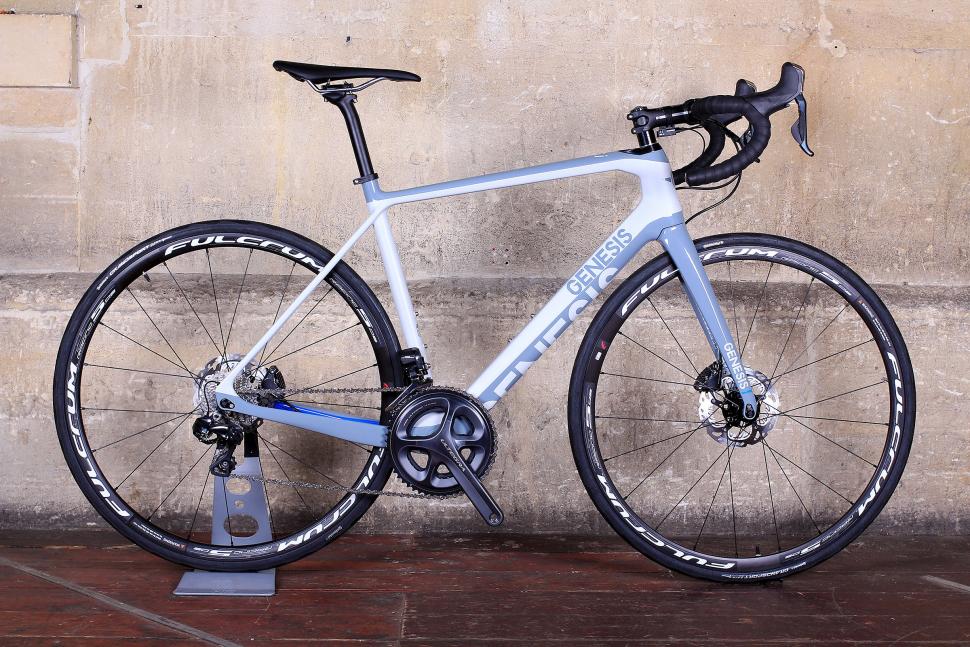
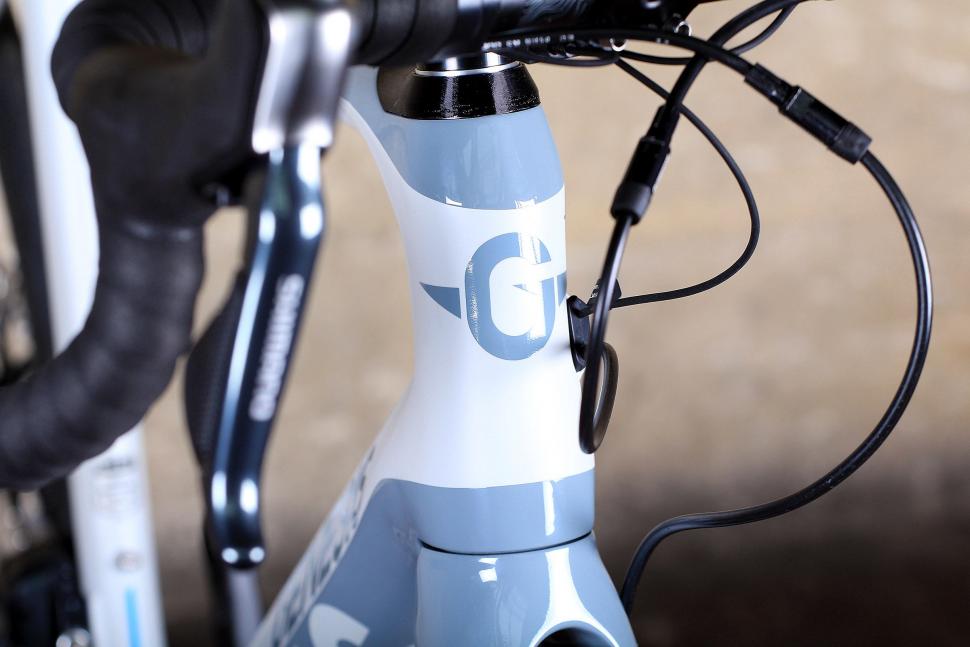
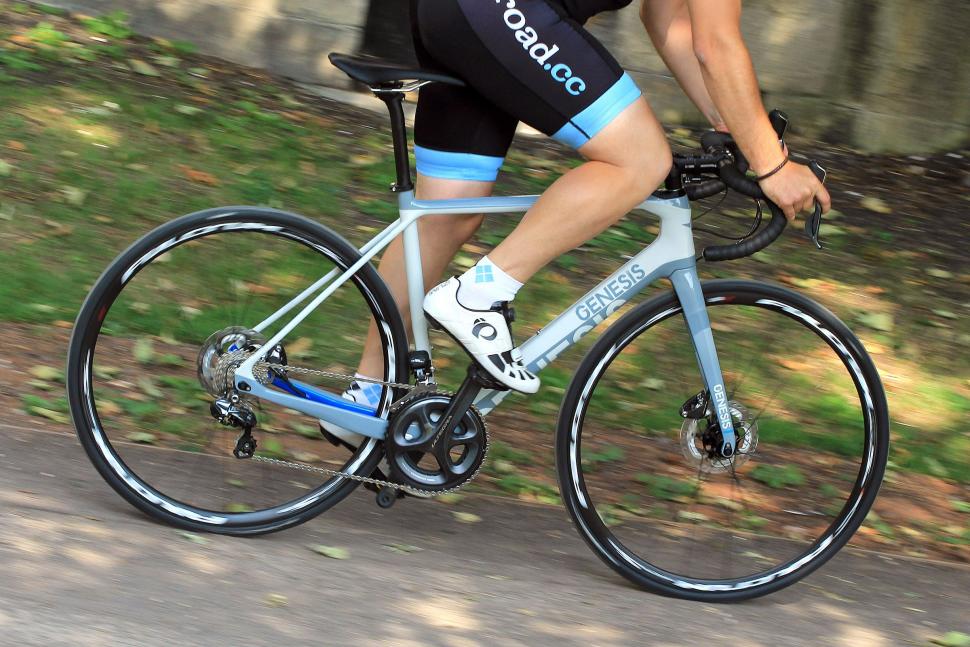
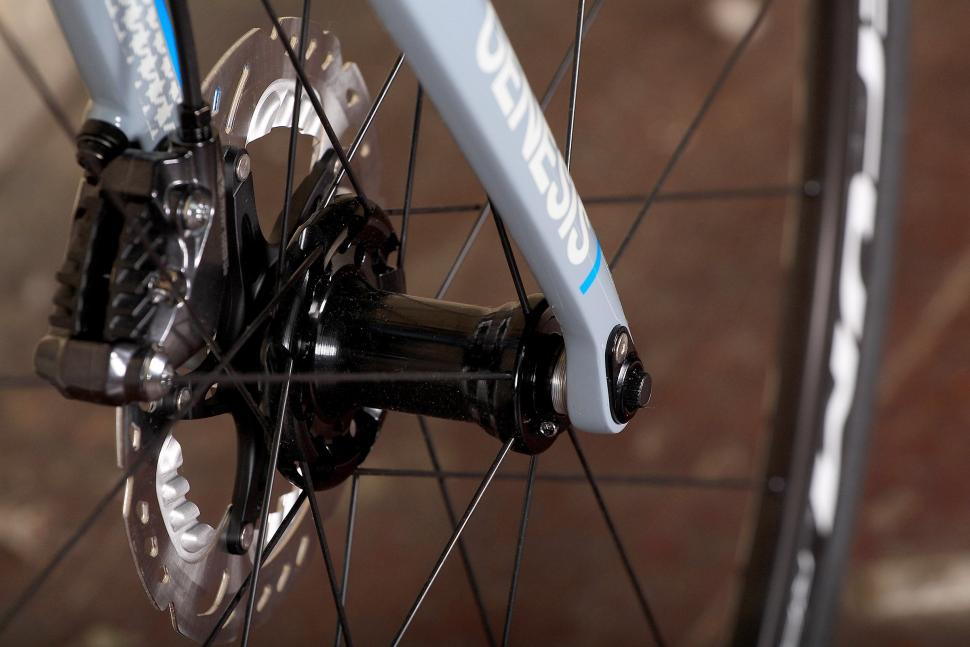




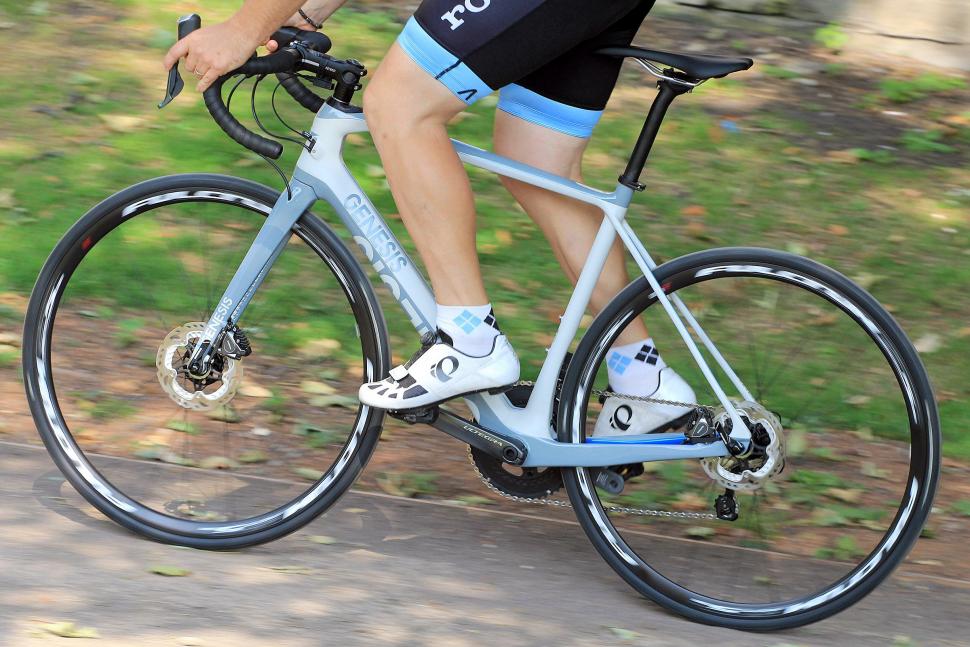
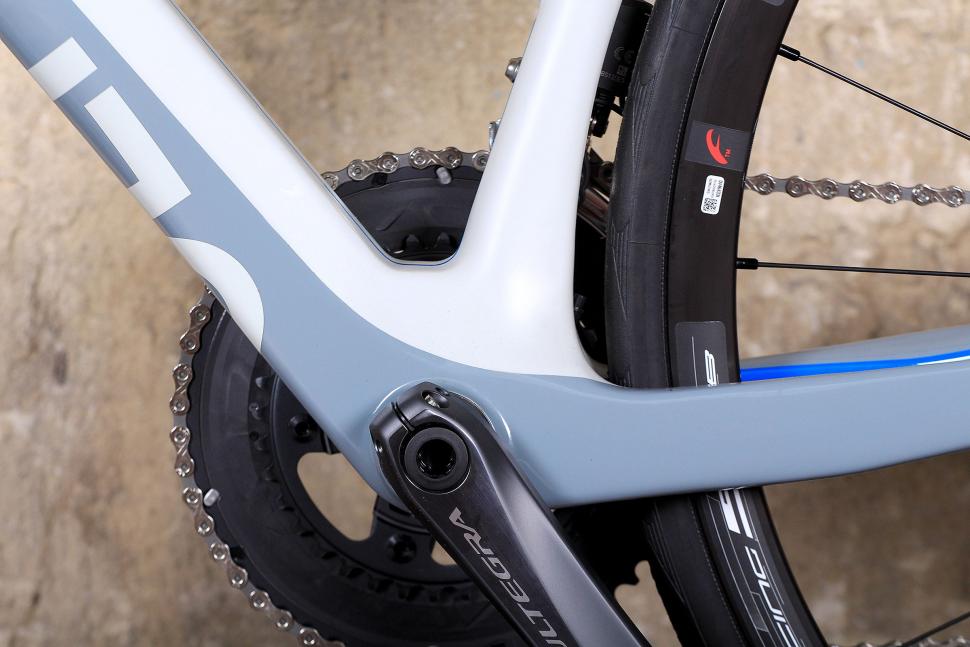
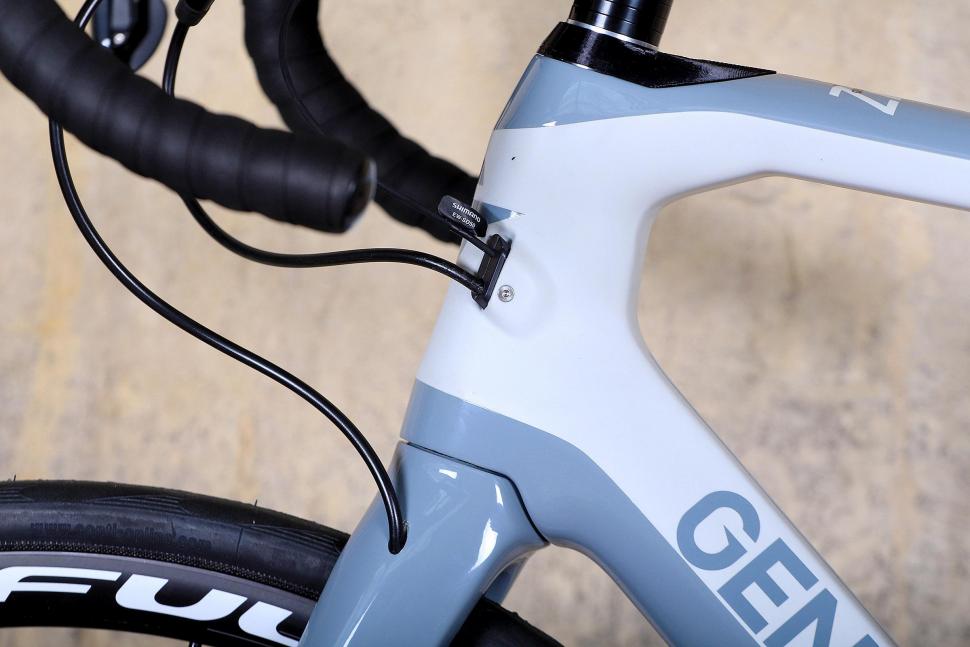
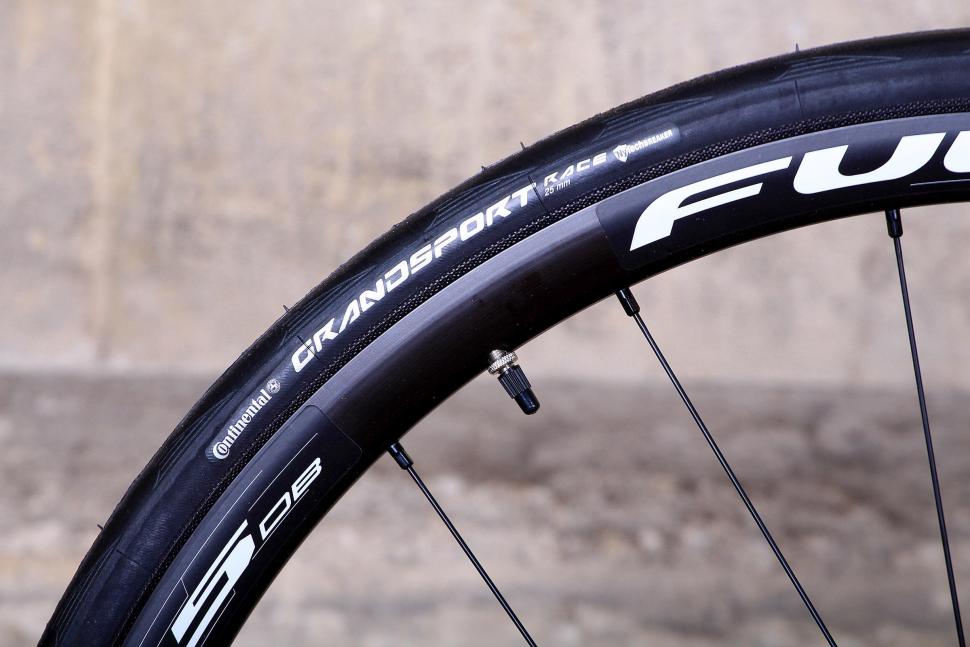
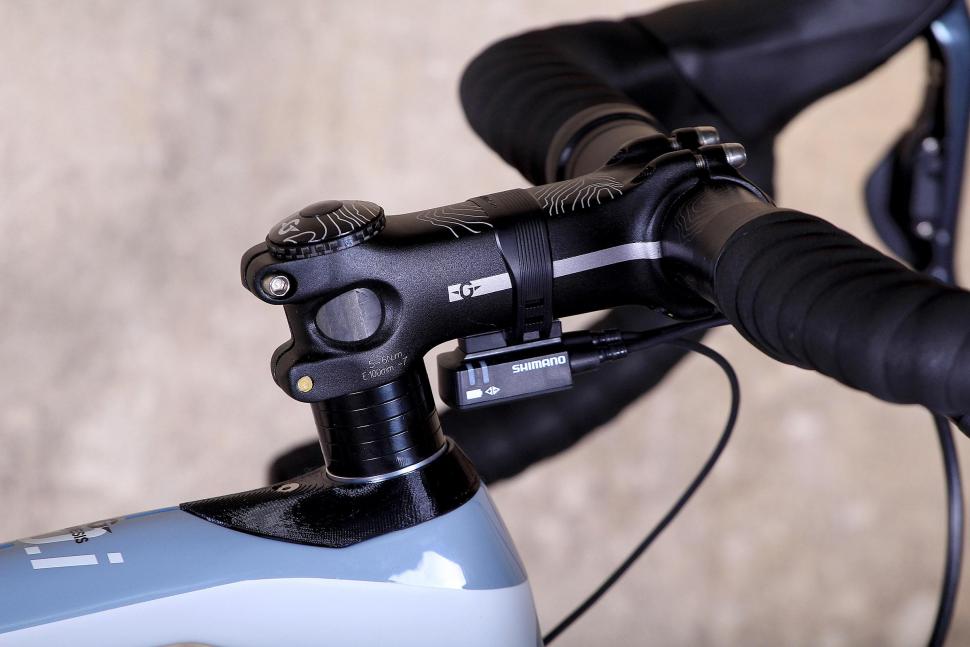

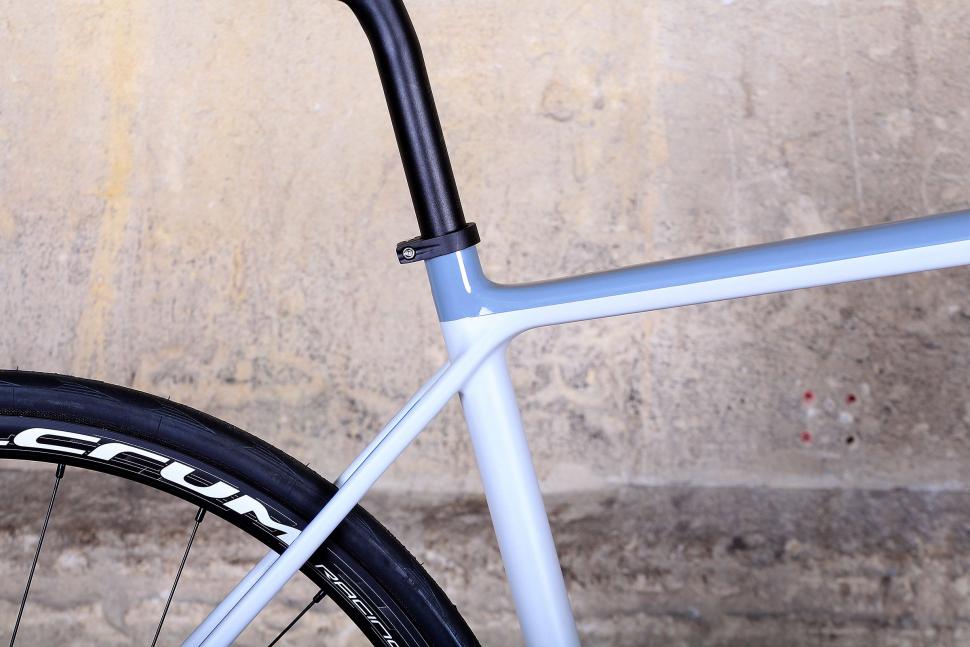
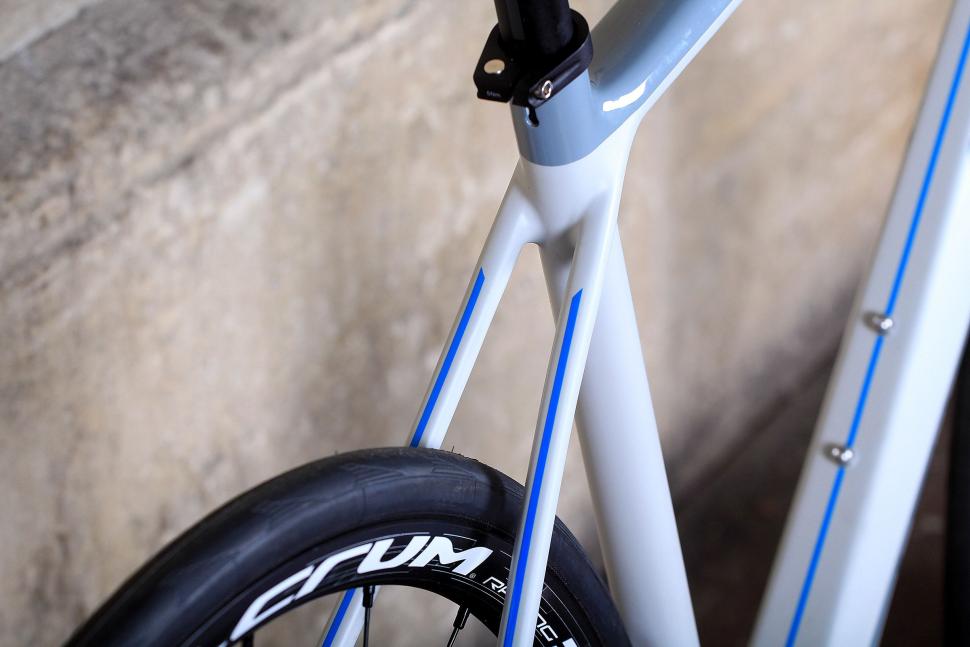
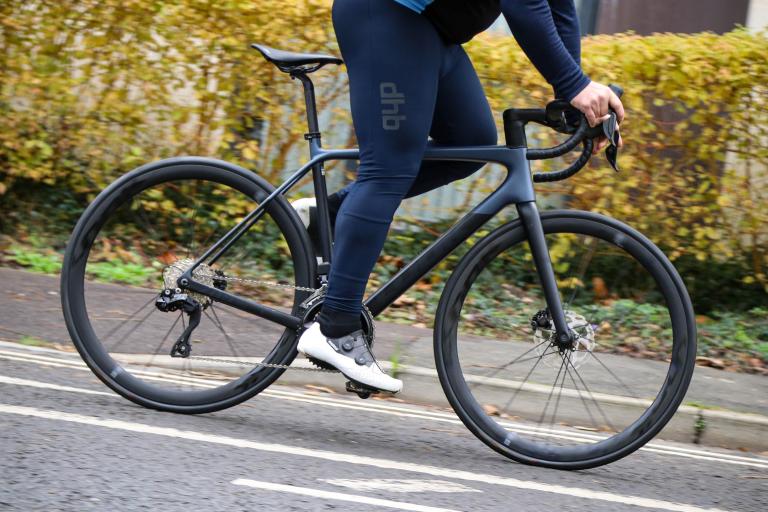
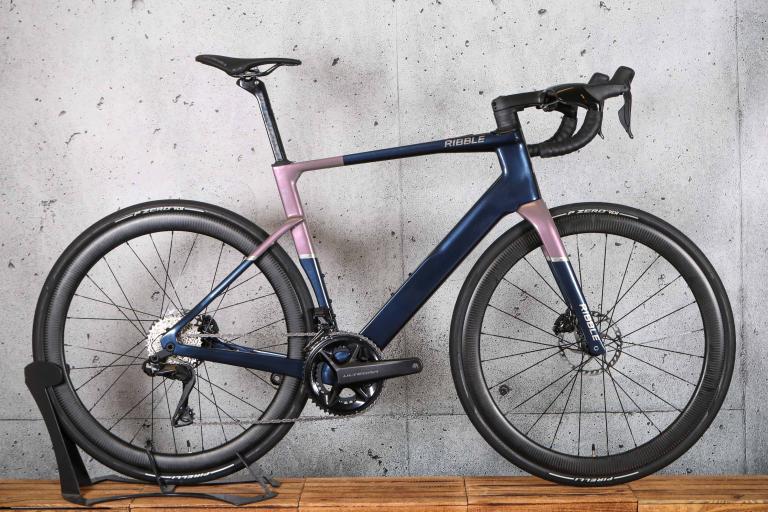
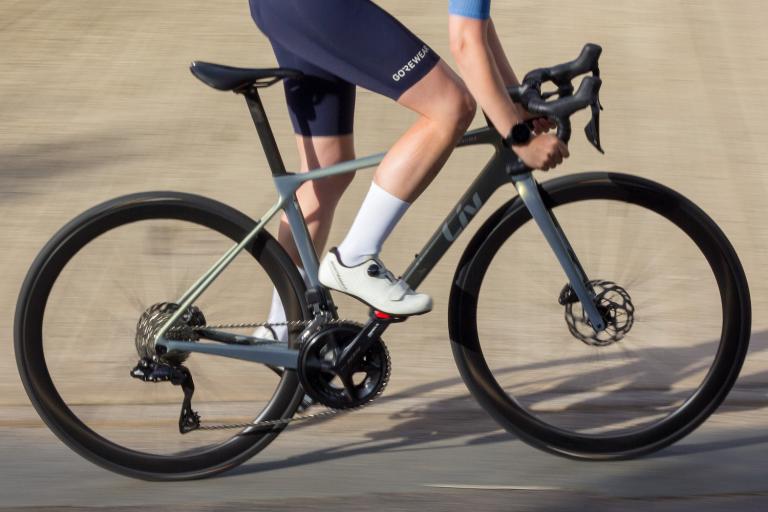
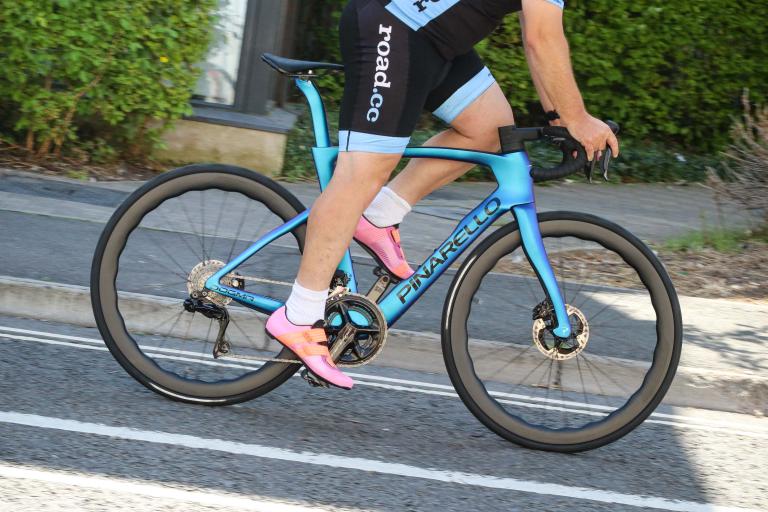
Add new comment
4 comments
I've just purchased the Genesis Zero Disc Ultegra spec bike, its a great all round bike in my opinion but theres one thing grinding my gears.... I can't find a trainer to fit its axle setup. With its 142mm by 12mm through Axle you need to find an adaptor from the off, but even then, the adapters fowl the frame, preventing the adapter axle from being screwed down tight.
Has anyone else had this problem?
I've had mine for a year, but haven't tried using a trainer.
I saw a similar problem with thru-axles and trainers and I think the solution was that the trainer manufacturer sold some kind of adapter.
I have a Genesis Zero i.
The only thing I've changed on it is the seat. The standard one is not great. I've replaced it with a Fizik Antares VS and it makes a large difference.
When I need to replace my bar tape I could be tempted to go for a new set of PRO bars.
I've had a lot of wheels now, handbuilts, heavy stuff, I currently run two pairs of the Pro Lite Revo (about 1650g or so). And I have to say that I rate the Fulcrum 5 DB very highly. Yes they're 150g or so heavier than something like the Hunt but very little of that is in the rim. They're very comfortable and I honestly can't detect any difference in acceleration between them and a marginally lighter wheel. Partner them with good rubber and they fly. Indeed, they're actually lighter than the Fulcrum Quattro I use on my Supersix. It's good to see them specced here, they're not expensive wheels but they are often £250+. It's good to see them preferred to the Aksium Disc or Racing DB